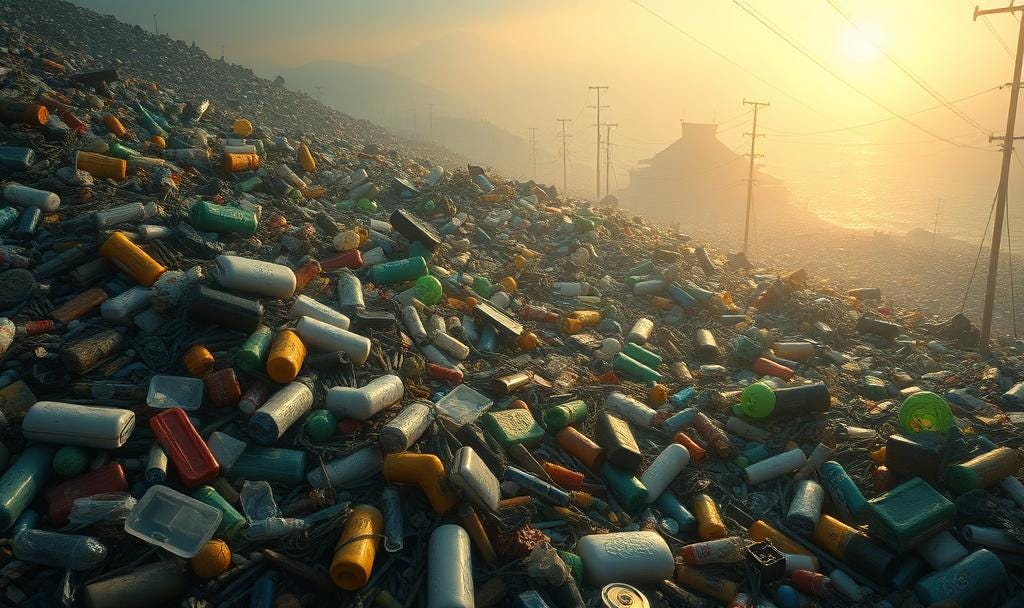Plastic pollution (still) here to stay
existential crises on the horizon: climate change, nuclear tension, AI and pandemics
As President Trump welcomed Russian President Putin in Alaska on Friday, the United Nations’ Intergovernmental Negotiating Committee concluded 10 days of talks to establish an international commitment to limit plastic production and more seriously address plastic pollution.
More than 1,400 delegates representing 183 nations and approximately 1000 observers representing 400+ organizations attended. At the end of those negotiations, here is the UN Secretary-General’s entire statement:
I deeply regret that, despite earnest efforts, negotiations to reach an international legally binding instrument on plastic pollution, including in the marine environment, concluded without achieving a consensus. I welcome the determination of Member States in continuing to work to beat plastic pollution and keep engaged in the process, united in purpose, to deliver the treaty the world needs to tackle this monumental challenge to people and the environment.
Though the statement attempts to end on a positive note, the distress caused by oil- and gas-producing nations refusing to limit plastic production and to ban chemical additives is hard to ignore. Key detractors include Saudi Arabia, Kuwait and the United States, who are concerned limiting production could have adverse economic consequences and favored an approach specifically focused on pollution.
While there is a sound argument for wanting all nations to improve waste collection, reuse and recycling efforts, the U.S. is once again presented with a moral moment to lead a global effort to safeguard future generations and intentionally chooses to shirk away.

